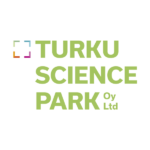Scanbalt Newsletter September 2003
Conference conclusions support activities in ScanBalt BioRegion
If the European Commission needed any reassurance that it is going in the right direction with regard to its communication on ‘researchers in the European Research Area: one profession, multiple careers’, adopted on 18 July, the conclusions of a conference on the same issue, held in Florence, Italy on 17 and 18 July, will have been very welcome. The conclusions can also been seen as support of activities in ScanBalt BioRegion.
The fundamental issues are the need for more researchers and increased mobility, both between countries and between academia and industry. Barriers to mobility limit the career options available to researchers and thus make the profession appear less attractive. Proposed in the Commission communication are actions addressing four areas (1) researcher training and funding; (2) recruitment procedures; (3) the contractual dimension; and (4) evaluation mechanisms.
Concrete proposals include the establishment of a high level group charged with identifying examples of good practice in terms of employment opportunities, such as intersectional mobility; the development of a ‘European researcher’s charter’, a framework for the career management of human resources in research based o voluntary regulation; and the outlining of a ‘code of conduct for the recruitment of researchers’ to improve recruitment methods.
Chair of the Commission’s external advisory group for Marie Curie actions, Alexandre Quintanilha, declared that mobility, both geographic and between disciplines, is crucial for the concept of a knowledge-based society to be realised.
Clinical trials in the Central and Eastern Europe growing
Over the last decade the number of multi-centre clinical trials in the Central and Eastern Europe (CEE) region has been growing on average at an annual rate of 30%. According to a press release from Chiltern International Limited, this figure could rise even further.
“There are a number of advantages that the CEE region can offer for conducting clinical trials in terms of speed of recruitment, quality of data and value for money,” explained Chiltern UK’s Clinical Development Manager for Central and Eastern Europe, Dr Boris Golubtsov.
European Summer School The Baltic Sea Region 2010
From the 7th to the 12th of July the European Summer School The Baltic Sea Region 2010 Theories, Methods and Practicalities took place at the Alfred Krupp Wissenschaftskollleg and the International Felix Hausdorf Center, Greifswald. The 35 participants (Ph.d.-students) studied and discussed during the Summer School subject like Science and Business collaboration around the Baltic Sea together with Life Science Networks and Communication. The Summer School is part of a EU- project The Baltic Sea Area Studies. More information about the project and the Summer School can be obtained from Jan Stampehl at
EU calls and publications
Calls: Life Science and Biotech; Regions of Knowledge; Support for policy development (patenting and university research); Science and technology foresight activities.
Publications: On Public research centres; Entrepreneurial innovation; Nano technology, bio informatics, marine research
The link has now expired.
EU policy focus and web services
This week: Bioinformatics; Endocrine research; EU funding to enterprises from candidate countries; Research in the 13 candidate countries,
Canadian fellowships for all nationalities; Women in science; Researchers mobility portal. The link has now expired.
Life Science events
Coming up: Sensor systems; Spectroscopy; Neurology; Nanotechnology, Women entrepreneurship; IP management, Genomic; Nutrigenomics. The link has now has expired.
Deadline for ScanBalt News
Deadline for the next issue of ScanBalt News is the 12th of September. If you have any news or information you would like to share, then please forward a few lines and add a link if necessary. Attachments should be avoided, however in case a link is not providing information in English, it will of course be accepted.
Editor: Peter Frank












